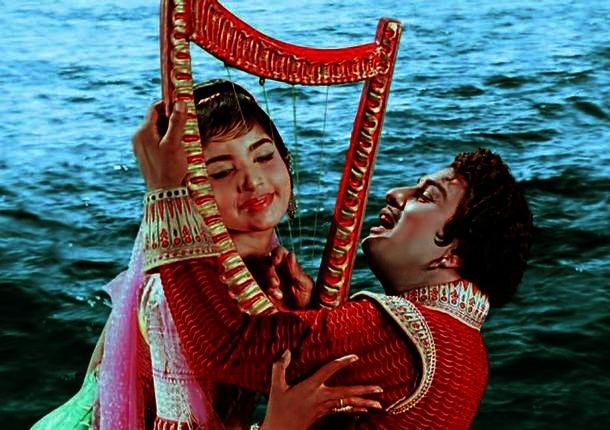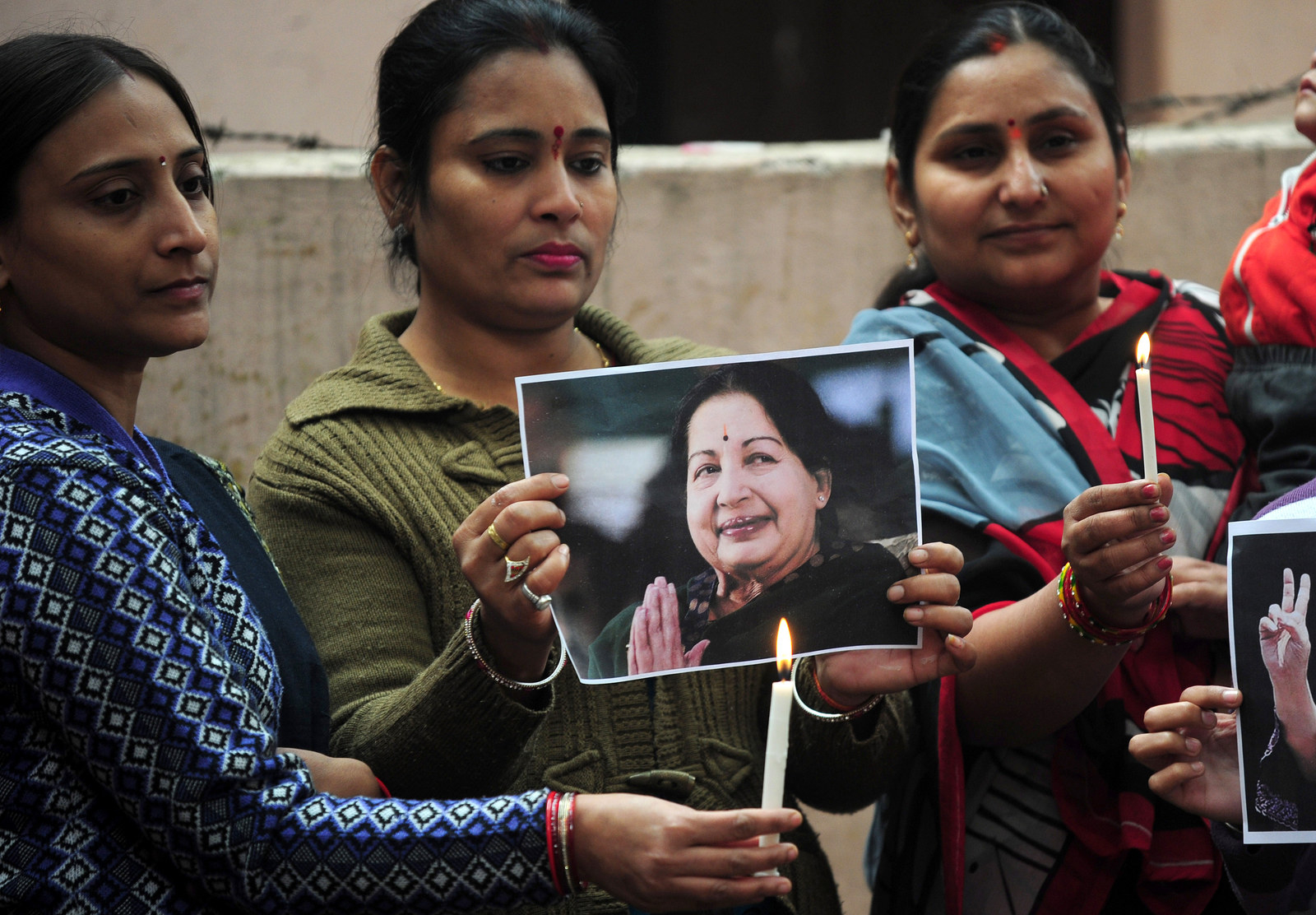
The day we learned Jayalalithaa had died, we were asked to leave work around three in the afternoon. The Chief Minister’s health had taken a turn for the worse.
Offices and shops across Chennai shut down early. Schools cancelled classes for the day. There were long lines at the petrol pumps and people were buying provisions for what looked like months.
I’ve been trying to understand why this loss feels so personal.
It was impossible to miss the palpable sense of dread gripping the wheels of every vehicle on the road.
It felt like a calamity was upon us.
These past few days, I’ve been trying to understand why this loss feels so personal.
After all, by the time elections rolled around this year, I’d begun to worry about the way Jayalalithaa had been governing the state of Tamil Nadu.
She was “Amma” to both party and people.
Growing up in Chennai in the nineties, it was hard to miss Jayalalithaa. By then she was “Amma” to both party and people.
I saw her famous smile on buildings on my way to school and back. Red and black Tamil lettering spelled “Amma” on every wall.
I’d watch old films with my mother after school. Most had Jayalalithaa as their leading lady.
“Isn’t she lovely?” my mother would sigh, and I’d agree.
In June 2001, the year I turned 12, Jayalalithaa orchestrated the famous midnight arrest of her political rival, M. Karunanidhi of the DMK. She’d just come back into power.
I remember my parents glued to the television, trying to make sense of the night’s bombastic events. Sun TV, which was allied with DMK, played the video of the arrest incessantly, showing Karunanidhi and his family members being roughed up in the middle of the night and dragged to the station.
“She thinks she can do anything now that she has the power,” my parents said. “She ought to have been more responsible.”
And while they argued, I remained thoroughly captivated by the drama.

It was my first taste of Amma’s legendary unwillingness to back down from a fight. I was transfixed by her gumption. This bold, vicious and complex lady had the audacity to do things her way, and she was the same woman I’d seen only weeks ago in movies on TV.
Watching a glamorous actress sashay in a chiffon saree and a beehive hairstyle on one channel and seeing the same woman arguing passionately in the assembly as Chief Minister on another is a feminist fantasy novel for most people in the world.
For me, it was just another Tuesday evening.
Today, I know that my grief has nothing to do Amma’s politics or policy.
I mourn the loss of a woman who shattered glass ceilings before my generation even learned what they were.
She shattered glass ceilings before my generation even learned what they were.
I mourn the loss of a woman who taught me, and every other young girl growing up at that time, that leadership had nothing to do with gender.
I mourn the loss of a woman who taught us that a world where a woman ran things was nothing out of the ordinary.
Yes, she shed the makeup and fancy clothes when she came into power, settling for austere, matronly sarees in her later life, in tune with her image of “Amma”.
But the work was done: for every young girl in Chennai, it was no longer assumed that a woman, in her lifetime, should have to pick between leadership, femininity, strength, glamour, ruthlessness, and fame.
It was mundane that she could — and therefore we could — choose “all of the above”.
In my late teens, I found myself browsing Wikipedia the night before I cast my first vote. I was mostly clueless about the political environment in Tamil Nadu. That was when I first learned about Jayalalithaa’s rise to power.
As I read her story – a lone woman who didn’t just fight, but obliterated her way through a political environment that was so deep-rooted in patriarchy – I felt moved in ways I hadn’t expected.
The next day, I went into the booth and cast my vote for the AIADMK. I didn’t pay attention to who the candidate for my constituency was.
It wasn’t for the party. It was for Amma.
It wasn’t for the party. It was for Amma.
I had begun to see why my mother, my aunts, my older cousins and pretty much every Akka in the house had been staunch in their support for Amma; why they became a sisterhood that united for a cause every election season.
I began to understand why Yellamma, our help at home, had never voted for anyone else.
Jayalalithaa’s greatest legacy as a politician is the way she mobilised and captivated the women of the state, across all classes. She validated their political views and made their electoral choices independent from the men they lived with.
During her 2011-2016 tenure, Amma gave away free mixies and grinders to women, along with a table fan. Yellamma couldn’t stop talking about it. "I’ve got more time to work in another house", she told me. Her college-going daughter got a laptop as well.
“Amma is always thinking about us."
“Amma is always thinking about us.” Yellamma would say, beaming.
Yesterday, her mortal remains were put to rest next to her mentor MG Ramachandran’s with full state honours.
Rest in peace, Amma. We are thinking about you, too.


